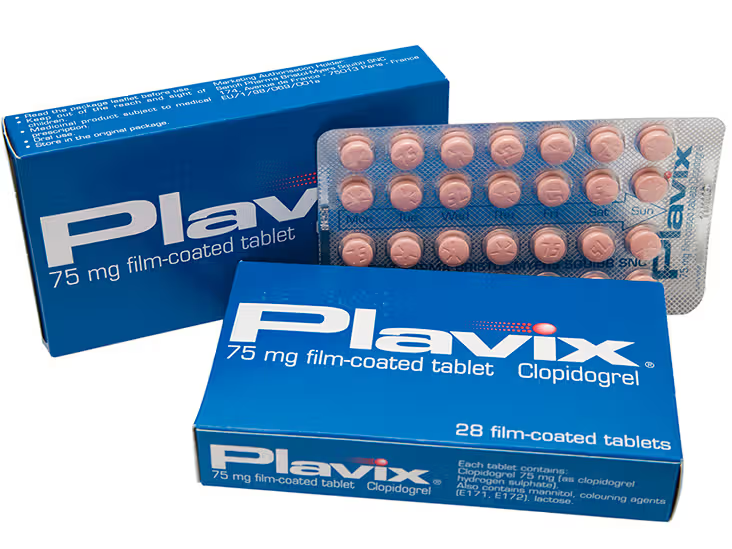Does AI Have a Place in Pharmacogenomics?
Artificial intelligence (AI) has the potential to revolutionize the field of pharmacogenomics, impacting drug response prediction and treatment effectiveness. By leveraging AI technology, pharmacogenomics can advance personalized medicine and improve patient outcomes across various conditions, including neurodegenerative disorders, cardiovascular diseases, and cancer.
AI in pharmacogenomics goes beyond traditional methods of genetic testing by providing an AI-based economic framework that considers cost and outcome effectiveness in drug selection. This enables healthcare providers to make more informed decisions and optimize treatment plans for individual patients.
Additionally, AI can enhance data-based outcomes, leading to more accurate coverage policies by payers. By analyzing large datasets and utilizing machine learning algorithms, AI can provide insights into the efficacy and cost-effectiveness of pharmacogenomic interventions, assisting payers in making evidence-based coverage decisions. Does AI Have a Place in Pharmacogenomics?

Key Takeaways and Does AI Have a Place in Pharmacogenomics?:
- AI can revolutionize pharmacogenomics by advancing personalized medicine and improving patient outcomes.
- It provides an economic framework focused on cost and outcome effectiveness in drug selection.
- AI enhances data-based outcomes, leading to more accurate coverage policies by payers.
- Pharmacogenomics AI contributes to the development of precision medicine for various conditions.
- The integration of AI technology can optimize treatment plans for individual patients.Precision medicine is a revolutionary approach that aims to improve health outcomes by considering individual patient data, including clinical and genomic information. It recognizes that patients do not react the same way to treatments and medications. By analyzing drug-gene interactions and using genomics-based drug selection, precision medicine can provide customized treatment plans that are more effective and tailored to each patient’s unique genetic profile.
The Role of Precision Medicine in Personalized Treatment
Precision medicine is a revolutionary approach that aims to improve health outcomes by considering individual patient data, including clinical and genomic information. It recognizes that patients do not react the same way to treatments and medications. By analyzing drug-gene interactions and using genomics-based drug selection, precision medicine can provide customized treatment plans that are more effective and tailored to each patient’s unique genetic profile.
One of the key advantages of precision medicine is its ability to identify specific gene variants that influence drug response. This knowledge allows healthcare providers to predict and optimize individual reactions to medications, reducing the risk of adverse effects and improving treatment outcomes. Genomics-based drug selection involves analyzing a patient’s genetic profile to determine which medications are most likely to be effective and well-tolerated. By leveraging this information, healthcare professionals can select the most appropriate drug therapy for each patient, increasing the chances of successful treatment.
Precision medicine is especially valuable in the management of complex and chronic conditions such as cancer. By understanding the specific genetic alterations driving a patient’s cancer, precision medicine can tailor treatment strategies to target those alterations directly. This personalized approach maximizes the chances of successful treatment while minimizing unnecessary side effects.
Furthermore, precision medicine has the potential to transform clinical trials and drug development. By selecting participants based on specific genetic characteristics that are relevant to the drug being tested, researchers can create more targeted clinical trials and improve the likelihood of successful outcomes. This precision-based approach streamlines the drug development process, allowing for the design of more effective and safer medications.
Advantages of Precision Medicine:
- Customized treatment plans based on individual patient data
- Improved prediction of drug response and treatment outcomes
- Reduced risk of adverse drug reactions
- Targeted therapies for complex and chronic diseases
- Streamlined clinical trials and drug development
“Precision medicine allows us to move away from a one-size-fits-all approach to healthcare and towards more targeted and effective treatments.” – Dr. Emily Johnson, Precision Medicine Researcher
| Treatment Approach | Advantages |
|---|---|
| Traditional Medicine |
|
| Precision Medicine |
|
The Integration of AI, Healthcare, Clinical Genomics, and Pharmacogenomics
The integration of artificial intelligence, healthcare, clinical genomics, and pharmacogenomics is paramount in the development of precision medicine. These interconnected fields play a vital role in achieving patient-specific outcomes through the utilization of AI technology, electronic healthcare records, and genomic data analysis.
AI has the potential to revolutionize healthcare by enhancing decision-making processes and improving patient care. In the context of pharmacogenomics, AI algorithms can analyze vast amounts of data to identify patterns, predict drug responses, and guide personalized treatment recommendations. By leveraging the power of machine learning, AI can unlock valuable insights from clinical genomics and pharmacogenomics data, enabling healthcare providers to deliver more effective and tailored interventions.
The Impact of AI in Healthcare
Through the integration of AI, healthcare systems can harness the potential of predictive analytics, natural language processing, and machine learning algorithms to augment clinical decision-making. For example, AI can assist in interpreting complex genomic data, identifying drug-drug interactions, and predicting adverse drug reactions. These capabilities empower healthcare professionals to make informed decisions and optimize treatment plans for individual patients.
One of the significant benefits of AI in healthcare lies in its ability to improve patient outcomes while reducing costs. By analyzing electronic healthcare records and genomic data, AI can aid in personalized diagnosis and treatment, leading to more effective interventions and better patient outcomes. Additionally, AI-assisted robotic surgeries and virtual consultations facilitate precision interventions, reducing the risk of errors and ensuring optimal treatment delivery.
The Role of Electronic Healthcare Records
Electronic healthcare records (EHRs) serve as a foundational element for integrating AI, clinical genomics, and pharmacogenomics in healthcare settings. These digital repositories of patient health information enable real-time access to comprehensive medical records, including clinical data, genomic profiles, and treatment history.
By leveraging EHRs, healthcare providers gain access to a wealth of data that can inform clinical decision supportsystems. AI algorithms can analyze this data to generate personalized treatment recommendations, identify potential drug interactions, and promote evidence-based medicine. The seamless integration of EHRs with AI technology empowers healthcare professionals to deliver patient-centered care and optimize medication management.
Advancing Precision Medicine
The integration of AI, healthcare, clinical genomics, and pharmacogenomics paves the way for advancing precision medicine. This interdisciplinary approach revolutionizes healthcare delivery by tailoring treatment plans to individual patients based on their unique genetic profiles, clinical data, and personal preferences.
“The integration of AI in healthcare settings holds tremendous potential for unlocking new insights, improving treatment outcomes, and transforming the field of precision medicine.” – Dr. Sarah Thompson, Director of Genomic Medicine, Precision Health Institute.
The following table illustrates the key contributions of AI, healthcare, clinical genomics, and pharmacogenomics in precision medicine:
| Field | Contribution |
|---|---|
| Artificial Intelligence | Predictive analytics, personalized treatment recommendations, improved decision-making |
| Healthcare | Patient-centered care, improved outcomes, cost reduction |
| Clinical Genomics | Genomic data analysis, identification of genetic variations, personalized interventions |
| Pharmacogenomics | Prediction of drug response, prevention of adverse reactions, optimized medication management |
By harnessing the collective power of AI, healthcare, clinical genomics, and pharmacogenomics, precision medicine can unlock new possibilities for tailoring interventions, improving patient outcomes, and optimizing healthcare resources.
The Impact of Pharmacogenomics on Polypharmacy and Chronic Disease Management
Polypharmacy, the use of multiple drug regimens, presents challenges in managing chronic diseases and often leads to suboptimal utilization of healthcare services. The phenomenon of polypharmacy occurs when an individual is prescribed multiple medications to manage their chronic condition(s), which can include cardiovascular diseases, diabetes, and neurodegenerative disorders. However, the administration of multiple drugs concurrently can lead to drug interactions, adverse drug reactions, and poor treatment outcomes.
Pharmacogenomics, a field that combines pharmacology and genomics, can address these challenges by providing personalized medication regimens based on individual genetic makeup. By analyzing genetic variations and drug response, pharmacogenomic testing can predict, prevent, and manage adverse drug reactions. This enables healthcare providers to tailor medication recommendations and dosages to each patient’s genetic profile, optimizing treatment outcomes and reducing the risk of adverse events.
For example, pharmacogenomic testing can identify genetic variants that affect drug metabolism and response. This information can help healthcare providers determine the appropriate medication and dosage for a patient, reducing the risk of adverse drug reactions and optimizing treatment efficacy. By leveraging pharmacogenomics in medication management, healthcare professionals can make informed decisions to improve patient outcomes and reduce healthcare utilization and costs associated with polypharmacy.
Benefits of Pharmacogenomic Testing in Polypharmacy and Chronic Disease Management
Pharmacogenomic testing has several benefits in the management of polypharmacy and chronic diseases:
- Personalized Medication Regimens: Pharmacogenomic testing provides insights into an individual’s genetic makeup, allowing healthcare providers to tailor medication regimens to specific patients. By considering an individual’s genetic variations, healthcare professionals can customize treatment plans for better outcomes.
- Adverse Drug Reaction Prevention: Pharmacogenomic testing can predict the likelihood of adverse drug reactions based on an individual’s genetic profile. This information enables healthcare providers to avoid medications that may cause adverse effects, reducing the risk of treatment complications.
- Optimized Treatment Efficacy: By utilizing pharmacogenomic data, healthcare professionals can select medications that are more likely to be effective for a specific patient. This can lead to improved treatment outcomes and better disease management.
- Reduced Healthcare Utilization and Costs: By preventing adverse drug reactions and optimizing treatment efficacy, pharmacogenomic testing can help reduce healthcare utilization associated with polypharmacy. This includes hospitalizations, emergency room visits, and other healthcare services that result from medication-related complications.
Overall, pharmacogenomics has a significant impact on the management of polypharmacy and chronic diseases. By incorporating genetic information into medication management strategies, healthcare providers can optimize treatment plans, improve patient outcomes, and reduce healthcare costs.
| Benefit | Description |
|---|---|
| Personalized Medication Regimens | Tailoring medication regimens based on individual genetic makeup, improving treatment outcomes. |
| Adverse Drug Reaction Prevention | Predicting potential adverse reactions based on genetic profiles, avoiding medications that may cause harm. |
| Optimized Treatment Efficacy | Selecting medications with a higher likelihood of being effective for each patient, improving disease management. |
| Reduced Healthcare Utilization and Costs | Preventing adverse drug reactions and associated complications, leading to decreased healthcare utilization and costs. |
By leveraging the power of pharmacogenomics, healthcare providers can navigate the challenges posed by polypharmacy and improve chronic disease management. The integration of genetic information into medication management strategies enables personalized treatment plans and enhances patient care.
Informatics and Bioanalytic Methodologies in Pharmacogenomics
Informatics and bioanalytic methodologies play a crucial role in integrating and analyzing pharmacogenomic data, enabling healthcare providers to make informed decisions in medication management and optimize treatment plans for individual patients. These methodologies combine weak signals in symptoms and chief complaints with pharmacogenomic analysis to monitor drug-gene pairs and drug-drug interactions.
By utilizing computational techniques and genotypic data, healthcare providers can gain valuable insights into the genetic variations that influence drug response. This allows for personalized medication regimens that are tailored to each patient’s unique genetic makeup.
Furthermore, informatics and bioanalytic methodologies support the creation of regional databases to track clinical outcomes in bioanalytically-informed medication management programs. These databases provide valuable data on the effectiveness of different treatment approaches and help identify patterns and trends related to pharmacogenomic analysis.
Benefits of Informatics and Bioanalytic Methodologies in Pharmacogenomics:
- Integration of weak signals in symptoms and chief complaints with pharmacogenomic analysis
- Monitoring and analysis of drug-gene pairs and drug-drug interactions
- Utilization of computational techniques and genotypic data for informed decision-making
- Creation of regional databases to track clinical outcomes
Informatics and bioanalytic methodologies empower healthcare providers to unlock the potential of pharmacogenomic analysis. By leveraging computational techniques and genotypic data, these methodologies enable personalized medicine and optimize treatment plans for individual patients.
With the help of informatics and bioanalytic methodologies, healthcare professionals can make evidence-based decisions regarding medication management and improve patient outcomes. The integration of these methodologies creates a foundation for precision medicine, where treatments are tailored to each patient’s unique genetic characteristics.
The Role of Electronic Medical Records in Pharmacogenomics
Electronic medical records (EMRs) play a crucial role in integrating pharmacogenomics into clinical practice. With the ability to store and manage a vast amount of patient data, EMRs provide a digital continuity of care document that includes essential information such as patient health history, clinical data, and genomic data.
One of the key advantages of EMRs is their ability to support healthcare providers with clinical decision support in medication management. By incorporating pharmacogenomic data into EMRs, healthcare professionals can efficiently diagnose and prescribe personalized treatment plans based on individual genomic profiles.
The integration of pharmacogenomic data into EMRs has significant implications for medication management. By analyzing a patient’s genetic variations and drug response patterns, healthcare providers can identify potential drug-gene interactions and predict individual responses to medications. This information allows for the selection of the most effective and appropriate treatments, reducing the risk of adverse drug reactions and improving patient outcomes.
Furthermore, EMRs enable healthcare professionals to access comprehensive patient information, allowing for a holistic approach to medication management. By considering not only the patient’s genetics but also their medical history, current health status, and other relevant factors, healthcare providers can make more informed decisions regarding medication selection, dosage, and potential drug interactions.
The use of EMRs also facilitates seamless communication and collaboration among healthcare providers, ensuring that the entire care team has access to the most up-to-date information. This integrated approach to healthcare promotes continuity of care and reduces the risk of errors or duplicative treatments.
Overall, the integration of pharmacogenomic data into electronic medical records enhances medication management by providing healthcare providers with valuable clinical decision support. By leveraging the power of EMRs, healthcare professionals can deliver personalized treatment plans based on individual genomic profiles, resulting in improved patient outcomes.
Benefits of Electronic Medical Records in Pharmacogenomics
| Benefits | Description |
|---|---|
| Improved medication selection | Access to patient genomic data allows for personalized treatment plans based on individual drug-gene interactions. |
| Reduced risk of adverse drug reactions | Genomic data integration enables healthcare providers to identify potential drug-gene interactions and predict individual responses to medications, reducing the likelihood of adverse drug reactions. |
| Enhanced continuity of care | EMRs promote seamless communication and collaboration among healthcare providers, ensuring that the entire care team has access to up-to-date patient information. |
| Improved healthcare outcomes | By utilizing pharmacogenomic data in EMRs, healthcare providers can make more informed decisions regarding medication selection and dosing, leading to improved patient outcomes. |
The Potential of Precision Interventions in Pharmacogenomics
Precision interventions in pharmacogenomics have the potential to significantly impact patient outcomes and healthcare costs. By utilizing pharmacogenomic testing, healthcare providers can identify genetic variants that influence drug response, enabling them to predict individual reactions to medications. Incorporating genomic and pharmacokinetic information allows for the customization of medication regimens, reducing the risk of adverse reactions and improving treatment effectiveness.
However, further research is necessary to fully evaluate the clinical utility and cost-effectiveness of pharmacogenomic testing in different populations and healthcare settings.
Benefits of Precision Interventions in Pharmacogenomics
Improved Treatment Efficacy: Pharmacogenomic testing enables healthcare providers to select medications and adjust dosages based on an individual’s genetic makeup. By tailoring treatment plans to the patient’s genetic profile, precision interventions enhance the effectiveness of medications and can lead to better treatment outcomes.
Reduced Adverse Drug Reactions: Adverse drug reactions can be caused by individual genetic variations that affect drug metabolism. Pharmacogenomic testing helps identify these variations, allowing healthcare providers to avoid medications that may have harmful side effects based on a patient’s unique genetic profile. This proactive approach reduces the risk of adverse reactions and enhances patient safety.
Optimized Medication Regimens: By considering a patient’s genetic information, pharmacogenomics helps healthcare providers select the most appropriate medications and dosages for each individual. This personalized approach ensures that patients receive the right medication at the right dosage, improving treatment effectiveness and reducing the need for trial and error in finding suitable treatments.
The Role of Research in Pharmacogenomic Precision Interventions
Although precision interventions in pharmacogenomics show great promise, further research is crucial to establish their clinical utility and cost-effectiveness. Robust studies are needed to evaluate the long-term impact of pharmacogenomic testing on patient outcomes and healthcare costs, particularly in diverse populations.
Research initiatives should focus on:
- Assessing the value of pharmacogenomic testing in specific healthcare settings and patient populations
- Evaluating the economic implications of implementing pharmacogenomic testing in routine clinical practice
- Examining the long-term benefits and cost savings associated with precision interventions in pharmacogenomics
- Investigating the potential of pharmacogenomics to improve treatment outcomes in various therapeutic areas, such as cardiovascular diseases, mental health conditions, and cancer
By conducting thorough research, the clinical utility and cost-effectiveness of precision interventions in pharmacogenomics can be validated, paving the way for their widespread implementation in personalized medicine.
Establishing an IPGx Clinic for Personalized Medication Management
The establishment of an Interprofessional Pharmacogenomics (IPGx) Clinic can revolutionize medication management by leveraging pharmacogenomic analysis to provide personalized treatment plans. This clinic combines informatics and bioanalytic methodologies to integrate symptoms, chief complaints, genomic data, and pharmacokinetic profiles. By monitoring drug-gene and drug-drug interactions, the IPGx Clinic aims to improve health outcomes, reduce costs, and provide clinical decision support for primary care settings.
Using a digital continuity of care document, the IPGx Clinic maintains a comprehensive record of patient health information, clinical data, and genomic data. This enables healthcare providers to efficiently diagnose and prescribe personalized treatment plans based on individual genomic profiles. By leveraging clinical decision support tools integrated within this document, healthcare professionals can make informed decisions in medication management, enhancing the quality of healthcare and improving patient outcomes.
The IPGx Clinic can further enhance its capabilities by establishing a research registry that enables the tracking of clinical outcomes. This registry helps monitor the effectiveness of pharmacogenomic interventions and supports ongoing research in medication management for patients with complex chronic diseases. By analyzing aggregated data from the registry, the IPGx Clinic can continuously improve its practices and contribute to the evolving field of personalized medicine.
The Benefits of an IPGx Clinic:
- Personalized medication management based on pharmacogenomic analysis
- Integration of symptoms, genomic data, and pharmacokinetic profiles
- Monitoring of drug-gene and drug-drug interactions
- Improved health outcomes and reduced costs
- Clinical decision support for primary care settings
- Efficient diagnosis and personalized treatment plans
- Enhanced quality of healthcare and improved patient outcomes
- Research registry for tracking clinical outcomes and supporting ongoing research

By establishing an IPGx Clinic, healthcare providers can leverage pharmacogenomic analysis and clinical decision support to deliver personalized medication management. This approach improves treatment effectiveness, reduces the risk of adverse drug reactions, and optimizes healthcare resources. As the field of pharmacogenomics continues to advance, IPGx Clinics hold great promise in delivering tailored and effective healthcare for patients with complex chronic diseases.
Conclusion
The integration of AI in pharmacogenomics holds immense potential to revolutionize personalized medicine. By advancing drug response prediction and treatment efficacy, AI technology can greatly enhance patient outcomes. Precision medicine plays a critical role in leveraging genomic data and pharmacogenomic analysis to develop personalized treatment plans that are tailored to each individual’s unique genetic profile.
Informatics and bioanalytic methodologies, along with electronic medical records, further enhance the application of pharmacogenomics in clinical practice. These tools provide healthcare providers with access to comprehensive patient data and clinical decision support, enabling them to make informed medication management decisions. Such advancements are vital in delivering personalized and effective healthcare.
As the field of pharmacogenomics continues to evolve, the integration of AI and precision medicine will become increasingly important. The ability to predict drug responses and optimize treatment plans based on individual genetic factors will bring about a new era of personalized treatment. By harnessing the power of AI in pharmacogenomics, healthcare professionals can provide more targeted therapies, improve medication management, and ultimately enhance patient outcomes in a wide range of conditions, from neurodegenerative disorders to cardiovascular diseases and cancer.
FAQ
Does AI have a place in pharmacogenomics?
Yes, AI has the potential to revolutionize the field of pharmacogenomics by advancing drug response prediction and treatment efficacy. It can augment PGx testing by providing an AI-based economic framework focused on cost and outcome effectiveness.
What is the role of precision medicine in personalized treatment?
Precision medicine plays a crucial role in improving health outcomes by considering individual patient data, including clinical and genomic information. It analyzes drug-gene interactions and uses genomics-based drug selection to provide personalized treatment plans that are more effective and tailored to each patient.
How is AI integrated with healthcare, clinical genomics, and pharmacogenomics?
The integration of AI, healthcare, clinical genomics, and pharmacogenomics is essential in the development of precision medicine. AI technology, electronic healthcare records, and genomic data analysis are leveraged to provide patient-specific outcomes and personalized treatment recommendations.
How does pharmacogenomics impact polypharmacy and chronic disease management?
Pharmacogenomics can address the challenges of polypharmacy by providing personalized medication regimens based on individual genetic makeup. It predicts and prevents adverse drug reactions, improves treatment outcomes, and reduces healthcare utilization and costs associated with polypharmacy.
What are informatics and bioanalytic methodologies in pharmacogenomics?
Informatics and bioanalytic methodologies combine weak signals in symptoms and chief complaints with pharmacogenomic analysis to monitor drug-gene pairs and drug-drug interactions. They utilize computational techniques and genotypic data to make informed decisions in medication management and optimize treatment plans.
How do electronic medical records (EMRs) support pharmacogenomics?
EMRs provide a digital continuity of care document that includes patient health information, clinical data, and genomic data. This information supports healthcare providers with clinical decision support in medication management, allowing them to diagnose and prescribe personalized treatment plans based on individual genomic profiles.
What is the potential of precision interventions in pharmacogenomics?
Precision interventions in pharmacogenomics can improve health outcomes and reduce costs by tailoring medication regimens to individual patients based on genomic and pharmacokinetic information. This reduces the risk of adverse drug reactions and improves treatment effectiveness.
What is an IPGx Clinic and how does it impact medication management?
An Interprofessional Pharmacogenomics (IPGx) Clinic provides personalized medication management based on comprehensive pharmacogenomic analysis. It integrates symptoms, genomic data, and pharmacokinetic profiles to monitor drug-gene and drug-drug interactions, improving health outcomes and reducing costs in complex chronic diseases.
What are the benefits of integrating AI and precision medicine in pharmacogenomics?
The integration of AI and precision medicine has the potential to revolutionize personalized medicine by advancing drug response prediction and treatment efficacy. It leverages genomic data and pharmacogenomic analysis to provide personalized and effective healthcare.
Source Links
- https://www.ncbi.nlm.nih.gov/pmc/articles/PMC8224063/
- https://www.tcs.com/what-we-do/industries/healthcare/white-paper/pharmacogenomics-ai-healthcare-personalized-treatment
- https://www.ncbi.nlm.nih.gov/pmc/articles/PMC9299079/






